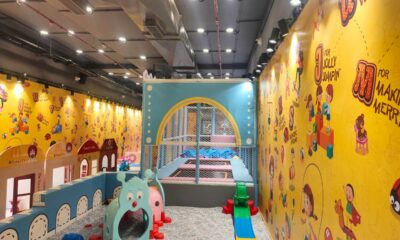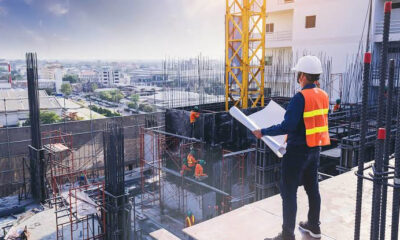News
Safety first – construction industry charts course for a well-being culture: CBRE


CBRE South Asia Pvt. Ltd, in their latest report, ‘Safety Culture in Construction’, talks about the concept of safety culture, its significance, and effective strategies for fostering and fortifying it within organizations. With a focus on best practices and actionable recommendations, the report serves as a guiding light for organizations committed to instilling a safety-first mindset.
Delving into the findings, the report analyzes nearly 380,000 incidents spanning various real estate sectors over the past five years. A notable trend emerges, revealing negligence, human error, and lack of awareness as predominant factors in over 90% of these incidents. This underscores the urgent need for proactive interventions aimed at addressing these root issues and prioritizing safety. Moreover, the report advocates for the adoption of standardized metrics such as the Lost Time Incident Rate (LTIR) and Total Recordable Incident Rate (TRIR) to evaluate health and safety strategies across projects, thereby enhancing industry-wide safety standards.
In dissecting incidents across different real estate segments, the report uncovers varying levels of safety challenges. Residential projects top the list with 635 incidents per project, while retail projects exhibit the lowest incidence rate at 60. Industrial & warehouse and alternate sectors collectively report 405 incidents, followed by other segments with 259 incidents. The office sector records a total of 160 incidents, shedding light on the diverse safety landscape within the construction industry.
In the realm of construction, ensuring health and safety is a shared responsibility among stakeholders spanning clients, contractors, designers, workers, and regulatory bodies. Each stakeholder plays a pivotal role in fostering a safe working environment and mitigating risks. From promoting transparent communication channels to investing in comprehensive training programs, from conducting thorough incident investigations to embracing technological advancements, every effort contributes to nurturing a robust safety culture.
The report emphasizes the critical role of tailored training programs in cultivating a strong safety culture. It outlines various training options, ranging from basic safety protocols to specialized hazard-specific training and leadership development programs. By continuously updating these initiatives to reflect evolving regulations and technologies, organizations can empower workers with the knowledge and skills needed to navigate safety challenges effectively.
Furthermore, the report explores the transformative potential of technology in revolutionizing safety practices within the construction industry. From wearables and drones to real-time monitoring systems and emerging technologies like AI and robotics, technological innovations offer promising avenues for enhancing worker safety and proactive risk management.
Looking ahead, the future of safety culture in the Indian construction industry hinges on collaborative efforts, responsible technology adoption, and a relentless pursuit of improvement. By prioritizing safety at every level and embracing emerging opportunities, the industry can pave the way for a safer and healthier work environment for all stakeholders.
CBRE India’s report underscores the paramount importance of safety culture in the construction sector and provides invaluable insights for organizations seeking to elevate safety standards. With collective efforts and unwavering commitment, the industry can chart a course towards a future where safety is not just a priority but a fundamental value ingrained in every facet of construction operations.
-



 News4 weeks ago
News4 weeks agoKW Delhi 6 Mall Onboards New Brands
-



 News4 weeks ago
News4 weeks agoManasum Senior Living Launches IKIGAI GOA, A Senior Living Community in North Goa, in collaboration with Prescon Homes
-



 News4 weeks ago
News4 weeks agoCommercial Realty Gets Tech Savvy: Fast Construction, Enhanced Convenience
-



 News3 weeks ago
News3 weeks agoGodrej Properties Sells Rs 3k cr+ Homes of Godrej Zenith, Gurugram, within 3 days
-



 News3 weeks ago
News3 weeks agoRBI’s Status Quo on Key Policy Rates to Help Maintain the Real Estate Growth Momentum, Say Industry Stalwarts
-



 News2 weeks ago
News2 weeks agoOlive Announces Dhruv Kalro as Co-Founder
-



 News1 week ago
News1 week agoNoida’s High-Rise Societies Face Multiple Challenges Despite Rapid Urban Growth
-



 News3 weeks ago
News3 weeks agoGodrej Properties Sells 5000+ Homes of Rs 9.5 cr in Q4FY24, Bookings up 84% YoY
















